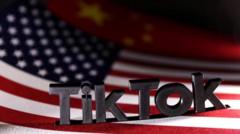The significance of a company's CEO is under scrutiny as giants like Starbucks, Boeing, and Nike see changes at the helm, prompting a reflection on the responsibilities and expectations of top executives. Alan Lafley, the former CEO of Procter & Gamble (P&G), likens leading a vast corporation to managing a Premier League football club, emphasizing the singular accountability on the CEO's shoulders. With global brands grappling with challenges such as declining sales and market competition, the appointment of new leaders is hoped to drive transformation.
The Crucial Role of a CEO: Evaluating Leadership in Major Corporations

The Crucial Role of a CEO: Evaluating Leadership in Major Corporations
In recent months, several high-profile companies have changed their CEOs, raising questions about the impact of leadership on corporate success.
Starbucks' recent CEO transition comes after a rough patch characterized by complex menus and competitive pressures, particularly in China. New CEO Brian Niccol's $100 million compensation package underscores the high expectations resting on him; the market responded positively, rallying 24.5% in share price on his first announcement. Conversely, his prior company, Chipotle, saw a slump of 7.5%, suggesting investors keenly monitor executive movements.
Corporate leadership extends beyond mere strategizing; it encompasses fostering effective teamwork and prioritizing initiatives that promote growth. Entrepreneurs like Marcia Kilgore advocate for the necessity of organization and collaboration within businesses, remarking on the role of a CEO in aligning various teams. Lafley himself made a strong case for communication and empowerment, stressing that leaders must not only clarify their vision but also inspire employees through direct engagement.
Moreover, executive coach Alisa Cohn notes the importance of confidence and adaptability in a CEO, asserting that these traits are critical for navigating the demanding landscapes of major corporations. The stress associated with such roles often justifies the staggering compensation packages for CEOs, with top earners in the S&P 500 reaching averages of over $16 million—196 times the pay of ordinary workers. Critics, however, argue that such disparities undermine economic equality and reflect flawed perceptions about executive responsibility for corporate outcomes.
Despite the intense scrutiny of CEO pay, Lafley argues for a model combining a modest salary with performance incentives to attract the best talent without excessive compensation models. Ultimately, the conversation surrounding CEO importance, accountability, and remuneration is ongoing, with implications for company culture, investor trust, and economic integrity.
As corporations navigate the complexities of the market, the dialogue about the influence of a CEO continues to evolve, with much at stake for both leadership roles and the broader economic landscape.
Corporate leadership extends beyond mere strategizing; it encompasses fostering effective teamwork and prioritizing initiatives that promote growth. Entrepreneurs like Marcia Kilgore advocate for the necessity of organization and collaboration within businesses, remarking on the role of a CEO in aligning various teams. Lafley himself made a strong case for communication and empowerment, stressing that leaders must not only clarify their vision but also inspire employees through direct engagement.
Moreover, executive coach Alisa Cohn notes the importance of confidence and adaptability in a CEO, asserting that these traits are critical for navigating the demanding landscapes of major corporations. The stress associated with such roles often justifies the staggering compensation packages for CEOs, with top earners in the S&P 500 reaching averages of over $16 million—196 times the pay of ordinary workers. Critics, however, argue that such disparities undermine economic equality and reflect flawed perceptions about executive responsibility for corporate outcomes.
Despite the intense scrutiny of CEO pay, Lafley argues for a model combining a modest salary with performance incentives to attract the best talent without excessive compensation models. Ultimately, the conversation surrounding CEO importance, accountability, and remuneration is ongoing, with implications for company culture, investor trust, and economic integrity.
As corporations navigate the complexities of the market, the dialogue about the influence of a CEO continues to evolve, with much at stake for both leadership roles and the broader economic landscape.



















